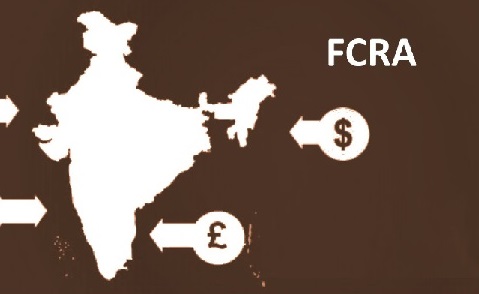This article is written by Gitika Jain, from Amity University, Kolkata. This article deals exhaustively with the provisions of Foreign Contribution Regulation Act (FCRA) 2010.
Table of Contents
Introduction
There is no doubt that the Foreign Contribution Regulation Act (FCRA) was started with an objective for that of national interest and any matters related to it. It can be said that the interpretation of this Act is based on the constitutionality of other Acts like Companies Act, 2013 and Companies Corporate Social Responsibility Policy Rules, 2014. National interest can be defined as something that is meant for the protection of economic, social, communal, cultural, educational, and religious values. The term foreign contribution is defined as any donation delivery or transfer that is made from a foreign source to a source whether in India or foreign.
Economic security
One of the most important bases for the enactment of this Act was economic security. This Act was originally enacted in the year 1976 for addressing all the security concerns related to foreign funding. Economic security has been defined in the Unlawful Security and Prevention Act(1967). It includes food, security, livelihood, security and energy, security, monetary and fiscal stability, the security of means of production and distribution, financial security, ecological and environmental security. The clause which defines economic security is not only meant with the perspective for NGOs but also for political organisations and political parties. The new amendment in 2010 included electronic media companies and organisations of political nature to the list of this Act. The restrictions on foreign contributions have been laid down under Section 3 of FCRA, 2010. According to this Section, foreign contributions cannot be accepted from the candidates for election as judge, government servant or employee, any member of any political party and organisation of any political nature, any company or news that is involved in a political scenario or any journalist.
Need for the establishment of this Act
This Act was needed for transparency in the financial transactions related to NGOs and the projects. It was necessary to check whether the foreign contributions to the NGOs were used by them for the purpose of maintaining the charitable organisations or for any other purpose. The main purpose behind establishing this Act, as already discussed above, is the national interest scheme and protection of the entry of black money. NGOs usually work for protecting human rights, maintaining the overall environment, and health and protecting the fundamental rights of the common public. Therefore it is important to check whether the person behind running an NGO is not using the money for any other purpose other than social service.
National agenda versus political agenda
The term which we use very often but its national interest has not been defined anywhere as such in any of the provisions of the Act. Since there is no proper definition of national interest, the government has broader power to interpret this term in any manner it feels like but it does not give any such power to the political authority to use this term for the purpose behind NGO. It is generally the National agenda that matters over the political agenda which needs this Act. Political agenda merely fulfils the political promises whereas the National agenda fulfils the primary objective of the Constitution of India.
Purpose
The main purpose behind setting up of this Act is to mitigate the risk of money laundering, cut down the inflow and outflow of Black money and financing for any unlawful activities. There are various NGOs, that after being registered under this Act, do not submit their annual returns rigorously. It is for this reason that they generate money for dubious purposes that are held to be non-complying with the norms of this Act.
Essential requirements
The most important requirement that is often neglected by organisations is submitting annual returns. The organisations receiving foreign contributions are required to submit annual returns within 9 months from the closure of the financial year to the central government and the returns must include every detail of the contribution received annually, the purpose for which it was received, and the manner for which it was used. In order to avoid any sort of actions from the end of the government against organisations, it is important to follow the FCRA norms and regulations thoroughly and follow them so that they come under the scanner of the government norms and do not run afoul of themselves.
Utilisation of funds
Once the organisation has obtained permission, they’re required to open a bank account in order to effectively utilise foreign contributions under the Act. A separate bank account for dealing with the transaction of foreign transactions must be used. A separate set of accounts is mandatory to be maintained for dealing with any kind of foreign contribution. It is mandatory that the foreign contribution should only be used for the purpose for which they are received and certain restrictions can be imposed on the transfer of such contributions. Unless and until a person has the authority to receive a foreign contribution, the transfer of such funds is prohibited from one person to another. There have been circumstances where the registration granted to sort an organisation has been suspended by the Ministry and the organisations have been put on the watch list for violating the norms of the Act under Section 7.
Registration of this Act
The Foreign Contribution Regulation Act, 2010 seeks to eliminate any kind of transaction that is detrimental to the national interest. The Foreign Contribution Regulation Act 2010 was notified in the official gazette of India on 26 September 2010 and it came into force on 1st May 2011. The earlier form of this Act was in the year 1976 which was repealed. The new Act of 2010 is just an improved version of 1976 and includes certain strict provisions to ensure that there is no misuse of foreign contribution and that the foreign funds are only being used for the purpose for which it has been laid down in the legislation.
This Act is regulated by the Ministry of Home Affairs, Government of India for the NGOs to be registered under this Act or certificate of registration is issued for a period that is valid up to five years from the date of its issue and it has to be renewed thereafter. The process of renewal is less time consuming than the process of registration. NGOs are required to submit an annual report and audited accounts to maintain transparency of the foreign transactions and they are required to comply with all the rules and regulations maintained under this Act. Any non-compliance from their side will result in the suspension of the registration and licence of those NGOs. Examples of such legislations of non-profit-making trusts can be the Bombay Public Trust Act, 1950, Societies Registration Act 1860, etc.
The flow of foreign funds to charitable organisations in India is being scrutinized by the Indian government for the last few years. In April 2015, the licences of over 8000 charitable organisations were cancelled by the Minister of Home affairs because of non-compliance, the necessary requirements of the Foreign Contribution Regulation Act, 2010. A very well known charitable organisation, Greenpeace India’s registration has been suspended by the government which was granted under this Act. Because of all the non-compliance of essentials of this Act, governments have closely been determining the level of compliances under this Act. The main purpose of enacting this Act was regulating the inflow of foreign contribution and ensuring that the foreign contribution received in domestic levels is not utilised for any other purpose other than for charitable organisations. In India, any charitable organisation receiving any sort of foreign contribution will come under the purview of this Act. It is therefore important to understand the consequences of non complying with the provision of the statute and major functions of this Act.
To divide the term FCRA, the two important phrases are foreign contributions received from foreign sources. The definition of the term foreign source is an exhaustive and inclusive one which is defined as an entity that is a source of funds established in a foreign territory. Similarly, the term foreign contribution is defined under this Act as any donation, delivery or transfer made by a foreign source of:
- Any article which does not exceed an amount of 25000;
- Foreign or Indian currency;
- Foreign securities which include foreign debentures, bond, stocks and other instruments of credit. The income generated from these contributions are called foreign contributions.
Which organisations can accept foreign contribution
The organisations which have social, religious, educational, economic, and cultural programs can accept foreign contribution under the Act. The contribution from foreign can be accepted only after the approval of the Government of India through the Ministry of Home affairs. Every time any charitable organisation or trust is about to receive any foreign contribution it has to seek permission and obtain one-time long registration which will be valid for 5 years. The renewal of permission is also necessary at least six months before the date of expiry of the permission. In order to be eligible for a long term application, the applicant should be in existence and continuous for a period of three years. Therefore it is not generally seen that charitable organisations apply for one time permission called prior permissions. Before applying for permission from the Ministry of Home Affairs, it is important for the organisation to review the guidelines issued by them to avoid facing any difficulty in future.
Conclusion
There are different enactments under which NGOs are registered for different purposes. They are an entity with legal existence and have a regulatory framework under different Acts. They also face various complications in law. Studies have found out that the majority of NGOs do not comply with the rules and regulations established under different enactments of various Acts. Though the number of NGOs is increasing day by day, it is becoming more difficult to control their growth in an effective manner. Regulation of foreign contribution and foreign hospitality was necessary for the sovereignty and integrity of India, political interest, freedom of election in any legislature, friendly relation with the foreign state, and harmony between race, social, religion, or religious groups or communities.
A very famous case of Greenpeace can be taken into consideration for this purpose where the Delhi High Court accepted the writ petition of Greenpeace by directing the Ministry of Home affairs to state the proper reason. This step by the Delhi High Court shows that the government is not biased in any sense and takes decisions based on relevant facts. In the other case of Association for Democratic Reforms and another v. Union of India and others, it was found that the BJP and Congress received funds for violating the rules under this Act. Giving preference only to the political aspect of the case is very dangerous for the economy at large and the Supreme Court held that it is violative of Article 14 of the constitution. In the case of Ramkrishna Dalmia in 1958 it was held by the supreme court that any legislation made cannot be put to use as well as abuse. Like any other Act, FCRA also has both pros and cons but the government should put emphasis only on the national agenda of the provisions in the Act.
References
- https://fcraonline.nic.in/home/PDF_Doc/FC-RegulationAct-2010-C.pdf
- https://www.lexology.com/library/detail.aspx?g=f86ace93-2a47-4ed0-a88a-d54912e1c0e0
- https://timesofindia.indiatimes.com/miscellaneous/Foreign-Contribution-Regulation-Act/articleshow/56221166.cms
- https://blog.ipleaders.in/do-we-need-fcra/#:~:text=%E2%80%9CFor%20the%2 0regulation%20in%20the,national%20interest%20and%20for%20matters
- https://blog.ipleaders.in/five-questions-to-tackle-before-making-foreign-contribution-regulation-act-fcra-applications/
- https://shodhganga.inflibnet.ac.in/bitstream/10603/34847/8/08_chapter%203.pdf
- https://shodhganga.inflibnet.ac.in/bitstream/10603/31667/15/15_appendix.pdf
- https://taxguru.in/rbi/synopsis-of-foreign-contribution-regulation-act-2010.html
- https://kb.icai.org/pdfs/PDFFile5b27800f8b7855.38000993.pdf
- http://www.humanrightsinitiative.org/old/tenders/FCRAct&FCRRules-prelim-critique-CHRI-VenkatN-May15.pdf
- https://ngosindia.com/
- http://mha.nic.in/fcra/intro/FCRA-Introduction.pdf
- http://www.academicjournals.org/INGOJ
LawSikho has created a telegram group for exchanging legal knowledge, referrals and various opportunities. You can click on this link and join:
 Serato DJ Crack 2025Serato DJ PRO Crack
Serato DJ Crack 2025Serato DJ PRO Crack










 Allow notifications
Allow notifications


